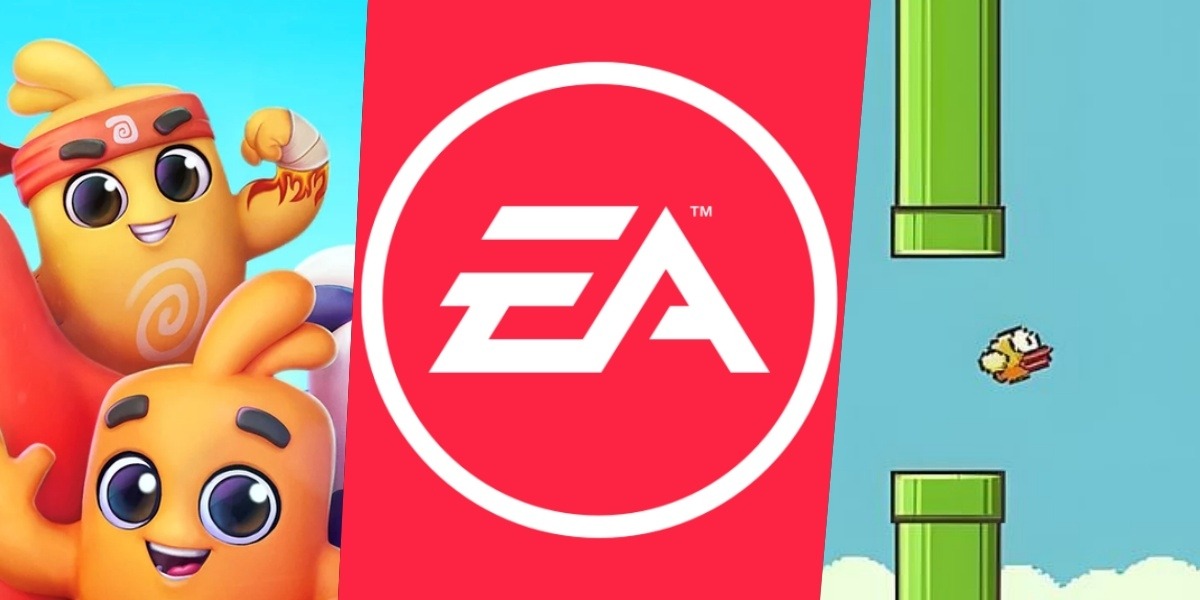Stay Informed
Get Industry News In Your Inbox…
Sign Up Today
The games industry moves quickly and while stories may come and go there are some that we just can’t let go of…
So, to give those particularly thorny topics a further going over we’ve created a weekly digest where the members of the PocketGamer.biz team share their thoughts and go that little bit deeper on some of the more interesting things that have happened in mobile gaming in the past week.

Craig Chapple
Head of Content
Flappy Bird is making a comeback but original creator isn’t involved
One of the original viral hits on mobile, Flappy Bird was a precursor to the hypercasual craze and proof that making ad revenue from games was possible. At its height, the title was said to be making $50k a day just from banner ads.
Developer Dong Nguyen later removed the game from stores, citing concerns over its addictiveness.
The title, naturally, spawned a legion of clones, but nothing ever topped the original.
Now Flappy Bird is back! But its original creator is not involved, with the trademark also snapped up by the ‘Flappy Bird Foundation’. Nguyen said he did not sell the IP.
Rather than simply release the title back in its original form, it now includes new worlds, modes like basketball-theme challenges and new characters. It’ll also apparently include a 100 player online mode for users to compete against each other.
A web version is set to launch in October, with iOS and Android releases currently planned for 2025. An early version of the game, Flap-a-TON, has been released on Telegram.
The game’s announcement has already been marred by controversy, with discussion surrounding how the Flappy Bird Foundation picked up the rights to the game – which it has responded to – as well as its links to blockchain and crypto.
As BlockchainGamer.biz notes, while the Telegram mini-game does not require a wallet to play, activity during the event will allow players to participate in a free minting event for the game’s FLAPPY token.
The mention of blockchain, cryptocurrency and NFTs in games often sparks anger and controversy, particularly for well known IPs. Creator Nguyen weighed in on that controversy, stating, “I don’t support crypto”.
Crypto has earned a reputation for scams following years of scandals and rug-pulls. What fascinates me is how a viral hit, enjoyed by millions of people the world over, appears to have been dragged back to life to, initially at least, serve a niche audience.
New Flappy Bird chief creative Michael Roberts might disagree with that assessment, stating that there is a community of 200 million gamers on Telegram.
But how big is the crossover of Flappy Bird and Telegram gamers? And how interested is the casual user in the blockchain?
This story looks set to run and run. We’ll find out how the web version looks next month and whether it truly leans into the nostalgia of the original to attract its once massive audience. The current headlines aren’t the best start.

Playtika to acquire Dice Dreams developer SuperPlay for up to $1.95 billion
Playtika is all set to acquire game developer SuperPlay for a massive sum of up to $1.95 billion. When you consider other major mobile acquisitions, such as Sega buying Rovio for $776 million, it’s quite the figure.
However, SuperPlay has done something that is no small feat in the current market: It brought its game Dice Dreams to its best year yet in 2024, years after its initial launch. Its other title, Domino Dreams, is doing well this year too.

Given the amount of money going into this acquisition, some could argue that it is overpriced. However, being able to show that both games are in a strong position that will also likely continue to scale is a real selling point. The fact former Playtika employees founded SuperPlay is a win too since it may make for an easier transition.
Finally, outside of what this means for Playtika and SuperPlay, the acquisition is a good sign for the games market in general, with M&A hopefully on the up.

EA reveals experimental Project Air and states AI “is not merely a buzzword for us”
During EA’s Investor Day 2024, CEO Andrew Wilson said AI “is not merely a buzzword” at the company. An hour or so later, CSO Mihir Vaidya took to the stage to give a sneak preview of Project Air, an experimental new product for mobile demonstrating the power of AI in character and scenario creation.
Claiming to have a new category of games “that doesn’t yet exist” here, EA showed off Project Air’s text-based gameplay where friends tried to convince an AI investor (that’s an investor powered by AI – not an investor looking to support AI, like most the investors at the show…) to support a product those players came up with.

Another scenario tasked players with proving their innocence to a detective, and another revolved around convincing a skater to dye his hair.
This was all shown in the broader context of user-generated context and its application to growing the business, as players would, in theory, create their own characters to share online and convince to agree with a whole range of arguments.
This product isn’t a part of EA’s immediate release pipeline but is an interesting glimpse at something that may or may not materialise in the years to come.

